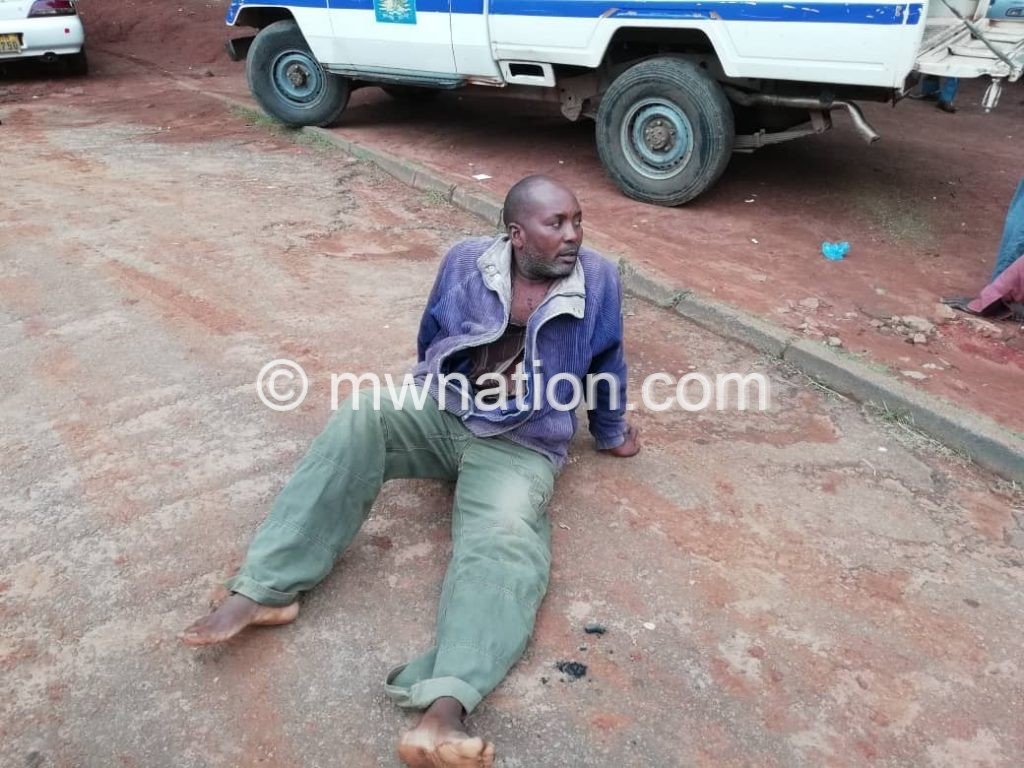No inquests on 70 suspicious deaths
Despite the law providing that an inquest be heard for every suspicious death, no inquest has been conducted on 70 such deaths in the last four years, especially on those who died in police custody.

The Inquest Act mandates the State to conduct an inquest on any death where there is “reasonable cause to suspect that such person had died either a violent or unnatural death” either in prison, police custody or any place.
But Nation on Sunday’s review of records from human rights organisations, police and published media reports show that over 70 suspicious deaths have occurred across the country in the last four years without any inquest conducted. At least 80 percent of these have the police as suspects.
Centre for Human Rights Education Advice and Assistance (Chreaa), a Blantyre–based non-governmental organisation, which closely works with the police and prison authorities, says in the last four years it has recorded about 60 inquest-deserving deaths where police is suspect.
Chreaa deputy director Chikondi Chijozi, a lawyer herself, fears that the figure could be higher as these are only the cases they have been able to capture.
“In most cases, the families of the victims do not know that the law requires that in such kind of deaths, an inquest should be conducted,” she said.
In September last year, our sister newspaper Weekend Nation, revealed that 40 suspects of robbery had allegedly been gunned down by police in months. And these deaths, most of which are part of Chreaa’s records, have gone without an inquest.
Apart from cases captured by Chreaa and Weekend Nation, the Malawi Human Rights Commission (MHRC), in the past two years received not less than 15 complaints of suspicious deaths, where police are suspected of being behind them.
The MHRC complaints list include suspects dying in custody for some illnesses as well as prisoners, and those allegedly gunned down for suspected robbery.
Section 4 of the Inquest Act provides for appointment of a magistrate; otherwise, referred to as ‘coroner’ to conduct an inquest.
Following the Attorney General’s opinion, police announced in the past that an inquest into the death of Buleya Lule, a suspect who died in police custody in February this year, would commence soon.
Police’s intention to hold an inquest was a reaction to an MHRC report which recommended prosecution of officers suspected to have had a hand in Lule’s death. The police-intended inquest on Lule, which is yet to start, is publicly viewed as a justice delaying tactic.
Legal expert Justin Dzonzi said police should not have waited to be told what to do following Lule’s death.
However, Dzonzi said one stumbling block in inquests was that the majority of would-be coroners were lay magistrates, who do not have comprehensive legal training to conduct such a demanding exercise.
Lule was among suspects in the abduction and killing of people with albinism who have died suspiciously with the public pointing a finger at the police.
Barely a month before Lule’s fate, Donald Msafiri, a suspect in the abduction of a one-and-half-year old child with albinism in Karonga, committed suicide after police interrogated him.
In 2015, Joseph Andiwotchi, another suspect in connection with the abduction of a two-year-girl with albinism in Machinga, died apparently after smashing his head against a tarmac road when he allegedly jumped off a moving police vehicle. Up to now, there have been no inquests on these deaths.
In a written response, National Police spokesperson James Kadadzera insisted that police always followed the law on this matter.
“We have conducted several inquests only that the Buleya Lule issue has attracted media attention,” he said.
When asked why magistrates did not follow the law on inquest on the highlighted deaths, n
Patemba said for magistrates to act they have to be moved. Judiciary spokesperson Agnes
“Magistrates are moved by prosecutors to preside over these cases. It is the responsibility of the State to take these cases to court and not people per se,” she said.
In an interview, executive secretary for the Malawi Human Rights Commission (MHRC) David Nungu said beyond the inquest law, which is rarely adhered to, there is need to establish the police independent complaint commission as provided for in the Police Act of 2010.
“One of the commission’s recommendations in the Buleya [Lule] report was that the Secretary for Homeland Security should expedite the operationalisation of the Independent Complaints Commission as provided under the Police Act. In the report, the commission stated that it would engage all relevant authorities in the operationalisation of the Independent Police Complaint Commission in the 2019/2020 financial year,” he said.
The Independent Police Complaints Commission will be responsible for investigating all elements of torture and violence against the police.





